TL;DR On Buying Your First Rental Property:
-
- Rental properties require more upfront investment and expertise than equities, like index funds, making them less accessible but potentially offering higher returns with lower volatility due to these entry barriers.
- Various strategies, such as house hacking, the BRRRR method, seller financing, and assuming the seller’s mortgage, enable investors to enter the rental market with little to no money down, challenging the conventional requirement for substantial upfront capital.
- Learn how to leverage creative financing options and negotiation tactics to overcome the high cash requirement barrier and successfully invest in rental properties.
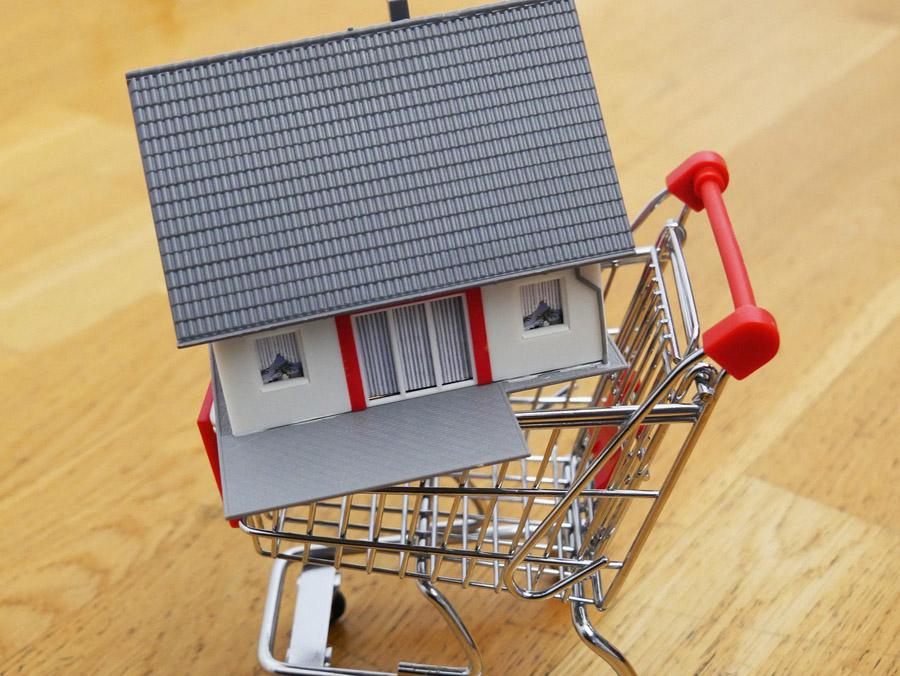
A study of asset returns over 145 years in 16 developed countries found rental properties outperformed stocks.
But how can rental properties perform better than stocks, with lower volatility and risk? Don’t higher returns mean higher risk?
The answer is simple: there’s a higher barrier to entry to invest in rental properties.
Buying Rental Properties Requires Money & Skill
Anyone can throw $100 into an index fund. No minimum cash requirements, no education required. It’s one of the great advantages of investing in equities, despite their volatility.
But rental properties pose two huge challenges to new investors: they require more money to purchase, and they require more skill than index fund investing.
At SparkRental we can help you with the “skill” part of that equation. We offer free rental investing courses, free webinars, a free weekly real estate investing podcast, and of course hundreds of free articles. But what about cash? Doesn’t it take tens of thousands of dollars to buy a rental property?
Yes — but that doesn’t mean you can’t use tricks and hacks to get around the down payment requirements for real estate investment.
Buying a Rental Property with No Money Down
If you’ve ever wondered “Can I buy a rental property with no money down?” you’re far from alone. Every real estate investor has asked the same question at one point or another.
Here are ten ideas for how to buy a rental property with no money down. Or at least less money down — there’s no free lunch in life, but you have several options to slim or even eliminate the down payment you need to buy your first rental property.
1. Consider House Hacking First
House hacking is the easiest way to buy your first rental property. And in the bargain, you score free housing!
The traditional house hacking concept is simple: you buy a small multifamily (2-4 units), move into one of the units, and rent out the other(s). Your neighboring tenants’ rent covers your mortgage and other housing costs, for effectively free housing.
And when you move out, you keep it as a traditional rental property, and the cash flow only improves from there.
How does this help your down payment? Traditional lenders require far lower down payments on owner-occupied properties than investment properties. It’s a simple risk calculation for them: borrowers are far less likely to default on their home mortgage than a rental property loan.
One popular low-down-payment loan program is FHA, which allows a 3.5% down payment as long as your credit score is over 580. (And let’s be honest, if your credit score is under 580, you should probably work on paying down debts before buying a rental property.)
But FHA isn’t the only option — there are conventional mortgage programs out there that require even less money down, sometimes no money down at all.
Down payments aside, conventional loan options also come with lower interest rates, for lower monthly mortgage payments. Compare prequalified interest rates and loans on Credible*, and talk to at least three traditional mortgage lenders or brokers before settling on a lender and loan program.
As a final thought, keep in mind that multi-unit properties aren’t your only option for house hacking. Try these other house hacking ideas as well to score free housing!
2. The BRRRR Method
One traditional model — which still requires cash up front, but you get it back — is the BRRRR method. The BRRRR strategy acronym stands for buy, renovate, rent, refinance, repeat.
It works like this: you buy a fixer-upper with a purchase-rehab loan, which does involve a down payment. You then renovate the distressed property, financing the upgrades with the purchase-rehab loan (try Kiavi or LendingOne for the initial renovation loan).
When the renovations are finished, you refinance the property with a long-term landlord loan (try Visio) and pull your original cash back out. It works because the new landlord loan is based on the new, after-repair value (ARV) of the property, not what you initially paid for it. So, if you created sufficient equity, you can pull some cash out when you refinance, to cover your initial down payment.
And if you’re struggling to come up with that initial down payment, try some of the strategies below to borrow the down payment elsewhere. Keep in mind that while beginners love the idea of 100% financing, the BRRRR method is actually better suited to more experienced investors, given the higher risk that comes with higher leverage. Start with lower-risk strategies if you’re a beginner at real estate investing.
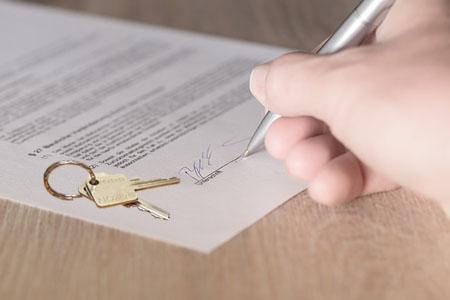 3. Seller Financing
3. Seller Financing
Of course, no one says you have to go through a loan program at all.
Sometimes sellers will finance the property for you, allowing you to negotiate any loan terms you want. Including the possibility of buying a rental property with no money down.
This works especially well with property owners who have no mortgage, or sellers who inherited the property and don’t know what to do with it. Maybe the property needs repairs, and the seller doesn’t have the cash to make them.
Often, they’re happy to accept regular monthly payments for the property, and take the income along with a quick settlement and not having to hassle with real estate agents and commissions.
Not every seller is open to owner financing, but many are. It’s worth exploring with them, and can prove an effective way to buy your first rental with no money down.
4. Assume the Seller’s Mortgage
Even if the seller isn’t willing to directly finance the property, you still may be able to work out with them how to buy a rental property with no money down.
You can offer to assume the seller’s mortgage and make payments on their behalf. You step into their (presumably low-interest) loan, leaving you with only the remaining difference to come up with. Just be careful about triggering the “due on sale” clause in the existing mortgage.
Remember, when you buy a property with conventional financing, lenders often won’t let you borrow the down payment. They want your skin in the game.
But in this case, you’re not borrowing a purchase mortgage, you’re just assuming the existing one, and paying the seller separately for any difference. You could even structure it as a wraparound mortgage.
That means you can pay them however you want!
You could borrow money from friends and family. Borrow from your credit card, or a personal loan. Or work out a loan with the seller themselves!
5. Negotiate a Seller-Held Second Mortgage
Say you find a lender willing to cover 80% of the purchase price on a landlord loan, but you don’t have enough money to cover the 20% down payment.
One place to borrow the money? The seller, once again.
Not every lender will allow this, so before you negotiate tooth and nail with the seller to offer you a second mortgage, talk to your primary lender first. Many portfolio lenders like Visio and LendingOne do allow it however.
It’s worth noting that FHA loans do not allow seller-held second mortgages.
6. Collateral-Based Lenders: Flexible on Fund Sources
Conventional and FHA lenders are sticklers for rules and regulations. They may not let you borrow money from the seller, or from anyone else, to let you buy a rental property with no money down.
But not every lender is so fussy about where your down payment comes from.
Landlord lenders and hard money lenders typically lend based on the property itself, the collateral, rather than on you as the borrower. The good news is they usually don’t care where your down payment comes from, as long as it’s not from them.
The bad news? They’ll lend at a lower LTV (loan-to-value ratio), which means they require a larger down payment. At least you won’t have to pay private mortgage insurance (PMI) though.
Plan on coming up with a down payment of at least 20% for a long-term landlord mortgages and hard money loans. As a note on terminology, hard money loans refer to short-term purchase-rehab loans, while portfolio loans refer to long-term landlord loans that the lender keeps within their own portfolio rather than selling. Often the same lenders offer both loan types. Try LendingOne, Kiavi, or Visio as reputable options.
By using a landlord lender or other collateral-based lender, you can borrow the down payment from elsewhere. Friends, family, credit cards, personal loans, the seller, your retirement account; wherever you want.
Some investors take out a personal loan to cover the down payment several months in advance, then borrow the purchase-rehab or landlord loan from a private lender like Visio whenever they find a good deal. The money for the down payment is already waiting and ready in their checking account.
7. Gap Lenders
Gap lenders specialize in covering the down payment for your next real estate investment. They take second lien position behind your main lender, and charge extremely high interest and fees to cover their high risk.
More commonly, they don’t charge interest or put a lien on the property at all. They instead take a partial ownership interest in the property, in exchange for covering some or all of your down payment.
You get what you pay for, or in this case what you don’t pay for. Gap funding can cost you a big piece of the pie, but some of the pie is still better than none. If you can’t afford to do a good deal on your own, consider discussing the deal with a gap lender.
Check out Gap Funding Solutions by Tony Javier as a reputable option.
Of course, if you have a rich uncle, they’ll probably charge you less than a professional gap lender.
8. Private Money from Friends & Family
As you gain experience as a real estate investor, and build a track record of success, the people around you will become more open to lending you money themselves.
You can borrow private money loans from friends, family members, and other acquaintances, and negotiate loan terms that fit both parties. For example, I lend money at 10% interest to a real estate investing couple who I know personally. They don’t mind paying relatively high interest for two reasons. First, I didn’t charge any points or fees or other closing costs at the beginning of the loan, which saved them thousands compared to a traditional loan or hard money loan. Second, I left the repayment date open ended, and structured the loan as interest-only.
Everyone you know is a potential private lender. You just need to establish trust and credibility with them. Do that, and you’ll never have trouble buying a rental property with no down payment again.
9. Partners
We’ve mentioned friends and family several times now as possible sources of money for your down payment. But who says lending you money is the only option?
They may want to partner with you on a real estate deal!
Imagine the following scenario: you don’t have any money for a down payment, but you bring real estate investing expertise (or the willingness to develop it). Your friend has money for a down payment, but no time to spend learning the ropes of buying rental properties.
Match made in heaven. They provide the down payment, you provide the knowledge and sweat.
Chances are, you know someone who’s looking to diversify and invest some money in real estate. Who doesn’t love passive income? And rental properties produce passive income better than just about any other investment.
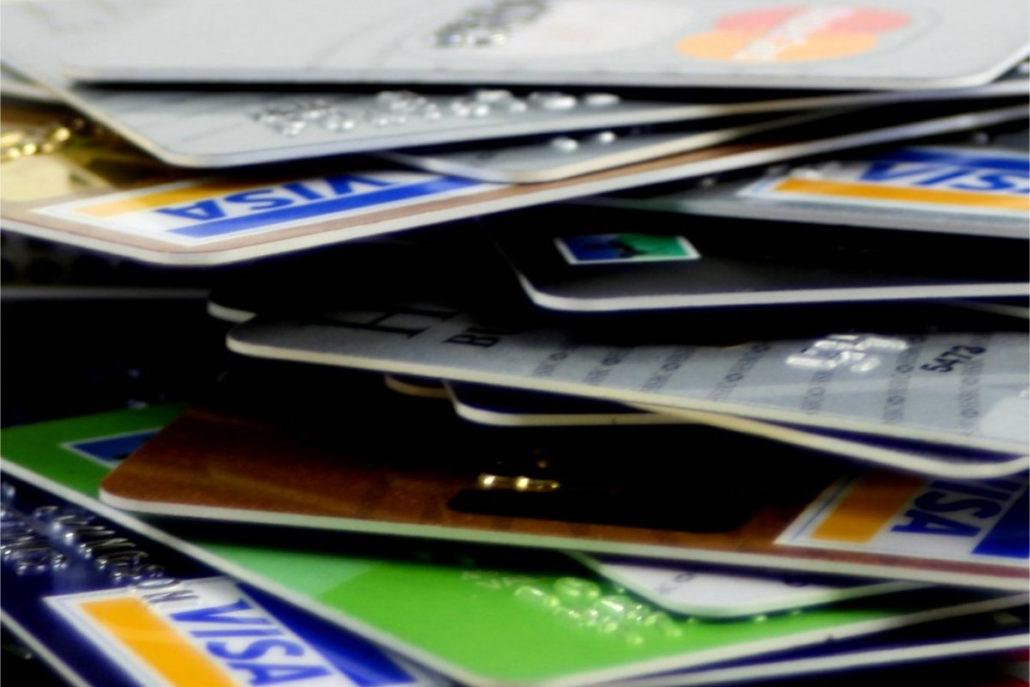 10. Credit Cards
10. Credit Cards
While we spent an entire article walking through the pros and cons, risks and “rewards” (see what we did there?) of using credit cards to buy rental properties, they’re worth exploring briefly here too.
In an ideal scenario, you draw on unsecured business credit cards during an initial 0% interest period. Using a business credit concierge service like Fund & Grow helps you open between $150,000-$200,000 in credit lines and cards on average, and they even show you how to pull money out at a 2.5% fee instead of the typical 3-4% cash advance fee.
Plus, you get to make cash offers, since you have the money available instantly. The funding is far more flexible than a mortgage, and often the cash advance fees are mitigated by the reward points.
Imagine you buy a $100,000 rental property, and get a landlord loan for $80,000 of it, leaving a down payment of $20,000. You pull $20,000 (or whatever you can) as a cash advance from your credit card, pay a 2.5% wire advance fee, and get 1.5% of that back in the form of rewards.
Which means you pay a net 1% fee to draw on your funding. That’s cheaper than borrowing a mortgage! In fact, you should consider avoiding the mortgage altogether and just using your credit lines and cards.
As for the interest, the trick is to pay that balance down, and fast. You’re on a race against the clock at that point: how quickly can you pay off the credit card balance? If the answer is “within a few months,” it’s a promising strategy. If the answer is “within a few years,” think again.
But at least you’ll have rental income from your property to help you pay it down faster!
11. HELOCs & Second Mortgages on Your Residence
Another idea to buy a rental property with no money down is to borrow money from your current residence.
Home equity lines of credit (HELOCs) are especially useful for this. You secure a line of credit against your home equity, and you draw on it as you need it, and pay it back with rental income.
You can even take out a HELOC on an investment property!
In the example we used above, you borrowed a landlord loan for $80,000, leaving you to come up with the other $20,000 to buy your $100,000 rental property. It’s a lot cheaper to borrow money from a HELOC than it is from your credit cards!
At least for the interest rate. The up-front costs to pull out a HELOC will be higher, since the lender will need to run a title history on your home and will almost certainly charge you junk fees.
Still, HELOCs are the gift that keep on giving. You can keep rotating it through as you buy a rental property, pull money out, pay it back, and repeat.
Second mortgages (AKA home equity loans) are less flexible but can still be used to cover your down payment on a rental property. Get quotes for second mortgages from multiple lenders through Credible.
More Ideas to Buy a Rental Property with No Money Down
Have you thought about using your retirement accounts to buy rental properties? What about crowdfunding websites?
There’s a fine line to walk, between getting creative with financing options in order to purchase a rental property with no money down versus over-leveraging yourself. When in doubt, save the money for a down payment rather than borrowing it. That goes doubly as you learn how to buy your first rental property, and your next few for that matter.
Take our free mini-course on reaching financial independence with rental properties for more ideas for where to come up with money for your down payment.
If you’re willing to get a little creative, you’ll be amazed at how little cash you actually need to buy your first rental property!♦
What tactics have you used to buy rental properties with no money down? What’s worked for you? What hasn’t? Share your experiences below!
More on Buying Your First Rental Property:
*Credible Disclosure: Prequalified rates are based on the information you provide and a soft credit inquiry. Receiving prequalified rates does not guarantee that the Lender will extend you an offer of credit. You are not yet approved for a loan or a specific rate. All credit decisions, including loan approval, if any, are determined by Lenders, in their sole discretion. Rates and terms are subject to change without notice. Rates from Lenders may differ from prequalified rates due to factors which may include, but are not limited to: (i) changes in your personal credit circumstances; (ii) additional information in your hard credit pull and/or additional information you provide (or are unable to provide) to the Lender during the underwriting process; and/or (iii) changes in APRs (e.g., an increase in the rate index between the time of prequalification and the time of application or loan closing. (Or, if the loan option is a variable rate loan, then the interest rate index used to set the APR is subject to increases or decreases at any time). Lenders reserve the right to change or withdraw the prequalified rates at any time.
Credible Operations, Inc. NMLS# 1681276, “Credible.” Not available in all states. www.nmlsconsumeraccess.org.


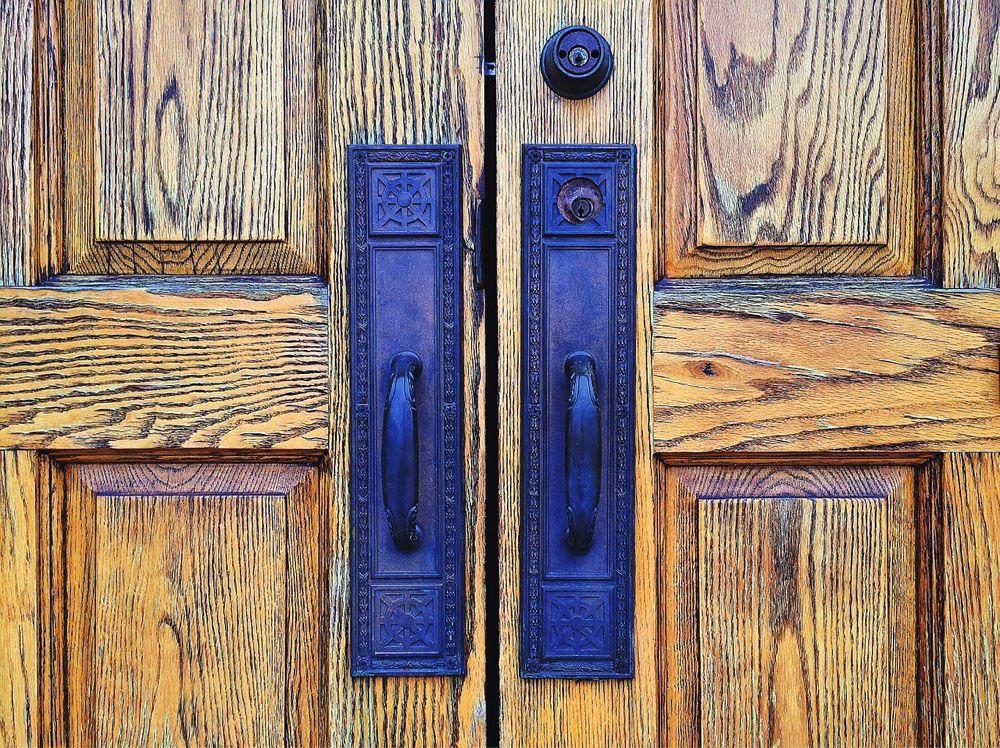

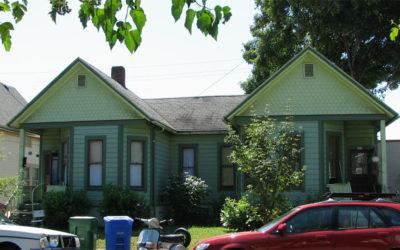























Good summary of the techniques to buy real estate without much cash. Still takes something normally, but as you pointed out, there are plenty of ways to slim down the cash needed.
Love your guys’ articles, so glad I found Spark Rental!
GReat article on buying your first rental property with no money down. Obviously there’s no one panacea, but by combining different techniques you can cut away at the amount of money you need to buy a rental property.
Great article & content. WE have aquired properties by working with property owners who want to retire & maintain their income. By offering a property management agreement along with a Master lease Purchase Option Agreement we have been able to aquire multiple properties. #TNREIA
Great idea Doug, and one that not enough investors consider!
My girlfriend and I want to move out of my parents house. I live in a country where employment is very difficult because I’m not a citizen. She currently works at a preschool where she doesn’t earn much, would taking a loan to buy a house and using the rental to pay the loan off work?
Hi Devon, it depends on the cash flow of the property. If you earn money on the property each month, then yes. But make sure you’re including all expenses, even the irregular ones like vacancy rate, repairs, maintenance, etc. Use our free rental cash flow calculator to run the numbers on properties before buying.
Would like to learn more about this option!
Leveraging is a great tool if you have no money sitting in your hand. It is really good way to build up your rental portfolio but you should also stay cautious while using some kind of leverage. Leverage works best when the property rates in your area are appreciating. But if the rates depreciate, leveraging can work against you and you can even lose your money you have put in down payment. 2008 market crash was the real example.
Some good points here, but it’s terrible advice to suggest someone could put a down payment on a credit card.
I bought a house financed nearly entirely on a credit card once. The more experience you have as a real estate investor, the more creative you can get with approaching it. But you need to master the fundamentals first, and to your point, novice investors need to be careful about over-leveraging themselves.
Where there’s a will, there’s a way! It is more imperative that you are prepared and have a strategy. I have never personally done this before, but if you know your end game and want to use a credit card I don’t think that’s bad.
Great point Don! All about being prepared and knowing what you’re getting yourself into.
Wow great strategy I am very impressed and interested
Thanks for sharing these! I’ve been saving up for a couple years now to buy my first rental property. Going to try some of these ideas to slim the required cash.
Excited to get into the game!
Great info here! Were working on using HELOC for our next property!! Its also sooooo helpful that we both have extremely good credit. Makes it a lot easier for us to get approved for a loan.
Awesome Heather! And it’s so true, strong credit definitely makes real estate investing easier!
Thank you so much for sharing this. I am working on buying my first rental property using HELOC and retirement savings fund. I am using this as a reference as I shop around for lenders.
Looking forward to hear from you on the way forward to buy property & rent to retire in a few years time.
Thanks, Ronald.
Thanks Ronald, I’m looking forward to it too!
great share!
Thanks Anil!
Just got an inheritance, would like to invest
How can we help Jill?
I need an investor, what a coincidence. My name is Christina Hawkins email me some time if you’d like [email protected]
Great info and I would like to use it to start my own property business.
Thanks Petunia, glad to hear it was helpful!
Definitely a huge challenge for me, coming up with a big enough down payment. Great tips for buying investment properties with no money down, hoping to try one of these over the next 4-5 months!
Glad it was helpful Josh! Thanks for the comment 🙂
I need to start a real estate job how do I begin?
Hi Mado, if you want a career in real estate, you might start by getting your real estate license to become an agent, learning the ropes and then investing on the side. Best of luck!
What a fantastic article on different ways to purchase a rental! My wife and I used a HELOC to purchase a new primary and turned our first home into a rental. We are now refinancing it and will be cash flowing around $1000 a month! We are considering purchasing turnkey properties in other markets to build up a portfolio. Thanks again for the great article!
Oh wow Richard, glad to hear you’ve been able to build a rental portfolio without much money tied up in each property!
My favorite part is where you mentioned that rental properties offer strong returns with minimal risks. It might be a better option than stocks, even if they require a higher downpayment. Once purchased, I also think that I can just easily hire a property manager who can do all the tiring work for me.
Absolutely Zoe! Investors can manage and mitigate the risks that come with rental properties, and delegate most of the work involved in owning and managing them.
What great ideas. I used to buy with no money down and grew up a lot, lost a lot too (LOL) and looking to come back again. I love real estate, especially apartment buildings. What a way to grow.
Do you know of any groups I can join to meet people interested in the same subject? Thank you for everything.
Hey Rephael, yes check out our Facebook group Landlords, Real Estate Investors & Property Managers Hub, which is extremely active with around 35,000 members.
Thank you so much for sharing , it’s an awesome article for people want to get into real estate. I would love to start my journey to create passive income by using debt . I have about 130,000 line of credit in Cibc , have a mortgage of 188,000. And my credit score is excellent.When I look into condominium or apartment , the price is so high and their maintenance fee is scary . Any suggestion where I should start? Thanks in a million .
Hi Ben, it’s a tricky time to invest in real estate, with such a seller’s market in most of the US. I’d look into cities with higher cap rates and explore buying either single-family homes or 2-4 unit multifamily properties to start. Check out this article for more information: https://sparkrental.com/turnkey-property-investing-long-distance-real-estate-investing/.
Thank you for quick response. Is there any tips to invest in Ontario ? Thank you
I’ve never invested in Canadian real estate so I can’t offer any tips on that particular front. Keep us posted on your progress!
Hi Brian,
I love the point you made about seller financing.
Honestly speaking, not many people have thought of that.
The only challenge here is finding such properties and being able to convince them that you will pay by installment.
But if it works out, it’s a great strategy indeed.
I will definitely be on the lookout for such offers.
Thanks a lot for sharing.
– Emenike
Thanks Emenike, keep us posted on your progress and what you end up doing!
I would like to get an apartment to have a place closer to my work. I have been working remotely since covid and moved to an other state. So I have rent to pay where I am, but Would like to get a small apartment where I was and Were My work is. I cannot pay my rent and an other apartment’s rent…..should I try to convince a partner to buy it for me and he can sell it in a few years? Trying to find creative ideas here….
Hi Franck, I would consider buying and renting out on Airbnb when you’re not using the apartment. Or finding some other way to house hack. Keep us posted on what you end up doing!
I’m wondering if cryptocurrency have entered real estate. I’m ready to invest land/property through crypto but I did not see any avenue to place my coins.
Hey Benjamin, check out our article on the intersection of NFTs and real estate: https://sparkrental.com/wtf-are-nfts-real-estate/
This is a fantastic post on how to buy your first rental property with no money down. Obviously, there is no one-size-fits-all solution, but by combining various approaches, you can reduce the amount of money required to purchase a rental property. Keep posting!
Buying your first-ever rental property is not an easy task at all; things can just get a bit too complicated. But, unfortunately, that’s how I’ve seen it to be in so many cases.
I’m sorry to hear that BD! It definitely requires more education and skill than the average novice investor realizes.
Very insightful and interesting discussion! Thank you so much for sharing.
These are great ideas we used to have a house that i grew up in ad willing to buy it back. the owner is a friend we know. And currently has a tenant. We plan to move back in soon. I was thingking a way to buy it back with the tenant still inside and earn rental income until the tenant moves out.
Sounds great Kevin, keep us posted on how it goes!
Hi Brian,
Just got to know about this! Thanks for the Free Rental Investing Course.
Adding this skill of quality rental Investment to my knowledge of Property Insurance will be really great.
And I was already advising some of my clients about the BRRRR strategy without knowing. It just got clearer.
This Content is helpful. Cheers!
– Daniel
Thanks Daniel!
Impressive! Thanks for the post
Glad you got something out of it Linda!
Thanks for updating this article!
You got it Evion!
I am in my 50 and would like to retired at 62 own my own home with my husband. And my husband is retired and disable. We have a renal property that we manage together. It was our first home and we made it to a rental. And we live in our second home. Both are paid for, but now we want to buy a third home and rent it out so we both can retire with passive income when I become 62 and want to travel, but the market is scary. What do you think?
Hi Vicky, first of all I want to say that real estate can offer a great source of passive income both before and in retirement. But active investing takes a lot of work and a lot of skill. I personally switched to passive investing, mostly in real estate syndications but also in real estate crowdfunding. I live overseas and no longer wanted any of the labor required to buy properties directly and manage them. All of which is a long way of saying that it depends on your skill level and enthusiasm for investing in properties directly.
I wish to know WHERE one can buy a multi family property for $100,000???? In Los Angeles a duplex is $1.6 million at least.
Check out our interactive map of the cheapest real estate markets Sandy!
This is awesome.
Mentioned this with a friend sometime ago.
Thanks TIG!
You’re always welcome, Sir.
Ok so I’m flat broke not even a dime to my name I have terrible credit but I do home renovations for cash under table but still flat broke so my ? Is it possible to get funds to buy a property I put the work in my self doing any of the renovations and then reselling the property for a profit and enough to cover the funding source repayment is this even possible and if so how do I go about doing this …
Hi Cory, yes you can do cosmetic renovations yourself with a conventional mortgage loan. If the property isn’t in habitable condition, you can’t get a standard conforming loan, you’ll need a 203K or other renovation loan, and you’ll need to hire licensed contractors. Bad credit hurts though, as you’ll need a larger down payment for the property.